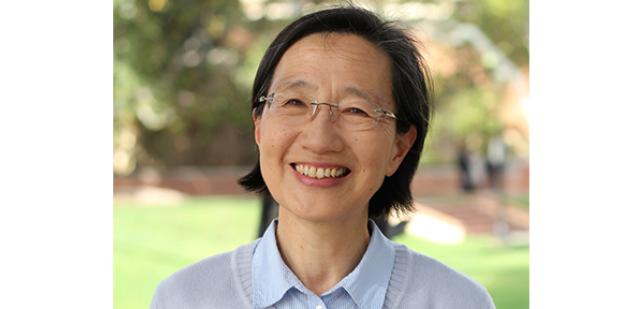Join us for a free one-day workshop for educators at the Japanese American National Museum, hosted by the USC U.S.-China Institute and the National Consortium for Teaching about Asia. This workshop will include a guided tour of the beloved exhibition Common Ground: The Heart of Community, slated to close permanently in January 2025. Following the tour, learn strategies for engaging students in the primary source artifacts, images, and documents found in JANM’s vast collection and discover classroom-ready resources to support teaching and learning about the Japanese American experience.
Tamanoi, Mariko

Mariko Tamanoi is an associate professor in the Department of Anthropology at the University of California, Los Angeles specializing in sociocultural anthropology, historical anthropology, political economy, gender studies and colonialism and nationalism in Japan and East Asia. She is also an affiliated faculty of the university's Center for the Study of Women and a member of the university's Center for Japanese Studies and Council on East Asian Studies. Professor Tamanoi received her Ph.D. degree from Northwestern University in 1982.
Professor Tamanoi's recent publications include: Dreaming Manchuria: Migration, Colonization, Repatriation and Nostalgia (under review); Crossed Histories: A New Approach to Manchuria in the Age of Empires Honolulu, University of Hawaii Press (2005); "Between Colonial Racism and Global Capitalism: The Japanese Repatriates from Northeast China since 1946" American Ethnologist 30:4:527-538 (2003); "A Road to a Redeemed Mankind: The Politics of Memory among the Former Peasant Settlers in Manchuria" South Atlantic Quarterly 99:1:143-71 (2001); "War Responsibility and Japanese Civilian Victims of Japanese Biological Warfare in China" Bulletin of Concerned Asian Scholars 32:3:13-22 (2000) and "Knoledge, Power, and Racial Classficiations: The 'Japanese' in Manchuria" Journal of Asian Studies 59:2:248-76 (2000).
Featured Articles
Please join us for the Grad Mixer! Hosted by USC Annenberg Office of International Affairs, Enjoy food, drink and conversation with fellow students across USC Annenberg. Graduate students from any field are welcome to join, so it is a great opportunity to meet fellow students with IR/foreign policy-related research topics and interests.
RSVP link: https://forms.gle/1zer188RE9dCS6Ho6
Events
Hosted by USC Annenberg Office of International Affairs, enjoy food, drink and conversation with fellow international students.
Join us for an in-person conversation on Thursday, November 7th at 4pm with author David M. Lampton as he discusses his new book, Living U.S.-China Relations: From Cold War to Cold War. The book examines the history of U.S.-China relations across eight U.S. presidential administrations.




